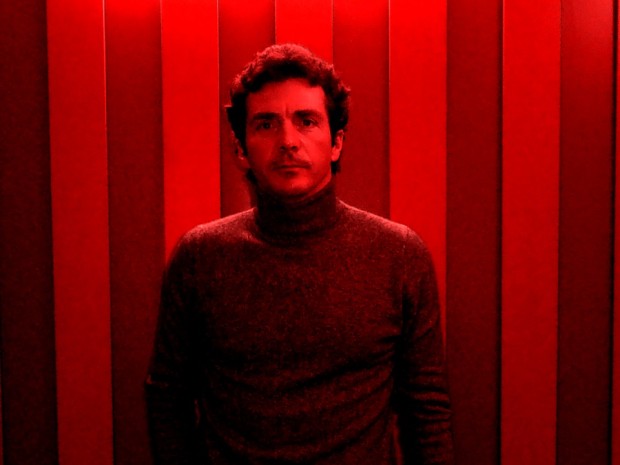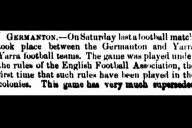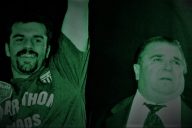Ser Gio Syrio was not the type of man to let circumstances affect his performance. He approached his duties as a knight of the Pissantguard with vigour, regardless of whether the battle appeared favourable or grim. But even he could not deny the pallor that had set over the Southern Kingdom since the sudden, shocking demise of King Josep. The warning his liege had once uttered in a moment of candor now hung heavily in his mind:
“In this moment I am so satisfied… but the winter, it is coming.”
Winter had indeed arrived. Though himself a legendary warrior, King Guillermo was struggling to keep the kingdom together. The people of Pissanttown, not so long ago optimistic, had now learned to dread the news of each skirmish well before it arrived. As though overnight, the Southern Kingdom’s defenses had crumbled, allowing raiders from the East, the North and the South to plunder their land and their riches.
Their most prized possession, won in a blood-soaked campaign where Syrio himself had slain many worthy foes, was lost. It had fallen into the hands of Goblin King Mus’kat, The Breaker of Legs and his battle-hardened horde, which seemed poised to conquer all before it.
Syrio knew he had it within himself to continue to give his all no matter the situation. However, he couldn’t help but wonder how long it would be before King Amor faced an insurrection, something that had been all too common before King Gombau had ascended the Red Plastic Throne in Pissanttown. The murmurs had begun among the commonfolk, the knives were being sharpened…
In football, the king always dies.
This time last year Adelaide United were flying under Josep Gombau, the king of pissants.
They had just defeated Wellington 2-1 courtesy of a late goal from Sergio Cirio, extending their undefeated start to the season to 10 games.
United would defeat the Mariners 2-0 to make it 11 before succumbing – again – to Victory in a 3-2 thriller.
Gombau’s Red Army would lift the FFA Cup in December, Adelaide’s first trophy in 7 years.
Though United were ultimately defeated in their quest for the Golden Toilet Seat, it was clear that optimism had returned to Hindmarsh. Adelaide was on the cusp of contending again.
The youth team, following Gombau’s philosophy, impressively won both the senior and reserves State League titles, and (as things stand) will compete in South Australia’s top NPL division alongside former NSL heavyweights Adelaide City and West Adelaide.
Perhaps more importantly, the club seemed to be moving back toward being ‘The People’s Team,’ as it had originally been dubbed.
Gombau’s personality and connection with the fans was a big part of this, going out of his way to bridge the divide between the people and the team that had slowly grown over the years.
Then, suddenly, he was gone. On the eve of the season, the King decided this pissant town wasn’t for him any more, and terminated his contract to move to New York.
Supposedly, there was nothing to worry about. Some in the media proclaimed that Adelaide would be better off without the “…more hype than substance…” Gombau, as Adelaide were successful despite him, or implied that he was disloyal and ‘adored’ the spotlight.
According to club chairman Greg Griffin, it would “…be a seamless transition…” under new boss Guillermo Amor. “The players are very sad to see Josep go. But they’re delighted our philosophy will continue.”
The transition has been anything but seamless. All appeared well enough when Amor began with a 6-1 win over minnows Darwin Olympic followed by an extra time 2-1 win over Sydney FC in the FFA Cup.
Then the rot set in. Adelaide was uncharacteristically meek in a 3-1 FFA Cup Quarter Final loss to Victory, managing just 2 shots on target for the game. Sadly, it was a sign of things to come.
Amor’s approach in that game was a departure from Gombau’s attacking style, and it drew questions from the playing group, as stated publicly by Tarek Elrich on SBS program The World Game.
Over five games beginning with the FFA Cup loss, Adelaide scored only 3 goals – a penalty and 2 own goals. This happened only once under Gombau’s reign, oddly running exactly as it has under Amor: from game 3 to game 7.
And it is easy to make the comparison to Gombau’s start, with Amor currently 1 game short of matching his predecessor’s 8-game winless run.
This is perhaps why it seems hypocritical that Amor does not have the clear support of the fans that Gombau did, while the local media has been supportive of the beleaguered coach instead of critical.
Gombau may have won the support of the fans despite losing because of his extroverted personality, while Amor gives Ernie Merrick a run for his money in the ’90 minutes, 0 emotions’ stakes.
However Gombau’s Adelaide felt more competitive during his early bad run, and the statistics somewhat support this.
After Round 6, the 13/14 Reds had 5 points to this campaign’s 2, all but one (a penalty) of their 8 goals were scored in general play compared to 4 out of 7 this season, and conceded 9 times instead of 15.
Adelaide’s first 3 losses under Gombau were all by 1 goal (though Round 7 saw a 3-0 loss to the Victory), rather than 2 or 3 under Amor.
It is also important to note that Gombau came to the club at a time of great change and upheaval. Midway through the 2012/13 season, prodigal son John Kosmina walked out of Adelaide United.
As told to Loukas Founten in the excellent A Decade United, Kosmina felt that he had been undermined by his assistant, Michael Valkanis, and became wary of “…the guys in the offices who stuck their nose in things they had no right to.”
Valkanis became interim manager, and in the process “…inherited all of Kossie’s baggage and all of his bullshit,” as he stated in Founten’s book. United won only two of the remaining ten games after Kossie’s abrupt exit.
Following Adelaide’s finals exit to the Roar, captain Eugene Galekovic launched a public attack on the club’s hierarchy, questioning their decision making and declaring: “If there aren’t any football people at this football club, maybe they’ve got to bring in people.”
It was clear that Adelaide was a club in turmoil prior to Gombau’s arrival. It is also understandable that Gombau needed time to implement Adelaide’s new style of play, while there were 7 additions to the squad (all of whom were regulars in the line-up except Jordan Elsey) – resulting in the Reds’ slow start to the campaign.
In comparison, Adelaide was flying high when Amor became coach. Amor was expected to maintain the style established by Gombau, while there have only been 4 additions to the squad – with just 9 starts between them so far (albeit due to injury in some cases).
There have also been valid excuses – captain and leader of the backline Eugene Galekovic has been injured, as have Iacopo La Rocca and Bruce Djite.
La Rocca might have replaced the ‘steel’ Adelaide now lack in defence due to the departure of Nigel Boogaard, while Djite is a key component of the Reds’ attack despite his lack of goal-scoring feats.
These absences do not wholly explain the change in attitude on the field, however.
Previously set backs did not seem to faze Adelaide, who would keep playing until they scored an equaliser or winner.
Now when luck goes against them, the Reds look a beaten side. Only against Sydney in the FFA Cup have they levelled the scores after going behind this season.
Despite comments from Mark Rudan and more recently Kosmina on Fox Sports, Griffin has assured fans that Adelaide is indeed United behind Amor, stating that: “They’re a very happy group. We have nothing but confidence in the playing staff and playing group.”
He also stressed that there was no chance of Gombau returning: “He’s never coming back. It’s not a question of us or money, he just doesn’t want to be here.”
The question of why Gombau suddenly desired to leave his Red ‘family’ is yet to be adequately answered, and it only invites more queries of the club’s decision making behind closed doors.
With a home game against the overachieving Jets looming, this perhaps presents Amor’s best opportunity to turn things around.
Adelaide faces the Jets twice in the next five games, as well as a home match against Kenny Lowe’s purple zombie horde – if the shambolic defending can end, and the attack continues to improve, Adelaide should be a chance to notch its first wins of the season.
Or if things still don’t go to plan, Amor or Griffin can just blame that hoof-ball merchant Gombau for releasing Adelaide’s key players.
While the reasons for the poor start to the season remain unclear, it is nonetheless obvious that Adelaide need to start winning games immediately if the unraveling of the goodwill the club built up during Gombau’s tenure is to stop.
The recurring march towards self-implosion must be halted. Else the goal of truly being ‘The People’s Team’ will be no more than a pipe dream, and fair Pissanttown will once again lay in ruin.

















Another great read, Justin. Can we have more tales of King Guillermo and his not so merry men?
I also need to know if Goblin King Mus’kat, The Breaker of Legs, finally sucumbs to a painful, bloody death!!!